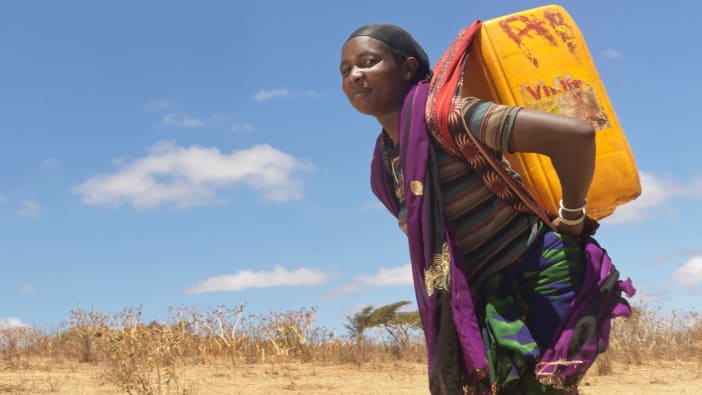by Pukuta N Mwanza.
Luangwa and Gwembe are two regions of Zambia which have been severely affected by five years of continuous drought. These droughts have left farmers poorer than before because they have been forced to sell their assets – livestock, equipment – and use up their savings to survive.
Recently EFZ (Evangelical Fellowship of Zambia) has organised village workshops on the subject of ‘Drought Mitigation’. In Gwembe 100 people from 55 different villages were invited for a four day workshop. The response was overwhelming and people came long distances. One young man, for example, arrived exhausted after walking over 20km.
The participation and enthusiasm of villagers was very encouraging. Bible studies, quizzes, teaching and demonstrations on oil extraction were included in the programme. Most time was spent in mixed group work and women felt free to participate fully. Points raised were then shared with all participants in open sessions. Issues of food security, food shortages and disaster mitigation were discussed and the following points emerged:
General observations
- There is little arable land available to cultivate because much of the land is hilly and rocky.
- People who come from outside areas are regarded as ‘foreigners’ and given very small plots of land.
- Parents have to divide their land to give to their children when they marry and this reduces the size of household farmlands.
- Many families do not use animal power for farming which limits the amount of land a single family can cultivate with hoes.
Early warning signs
- Rapid increases in market food prices
- Sale of animals suddenly increases
- Households move from self sufficiency to buying foods.
Traditional drought-warning beliefs
- Large movement of birds
- Large harvest of wild fruits before the rains begin
- A lot of honey in the bush
- A belief that many baby boys are born just before the rains. (People were very divided on this belief.)
Traditional preservation methods
- Use of cow dung as a repellent for insects and weevils
- Storing maize in grain stores built above the fire place so the heat and smoke drive away rats, weevils and insects.
Ways of coping with drought
- Participants compiled a list of 50 different wild tubers and fruits available at different times throughout the year. We were amazed at how God has helped to provide these numerous fruits and tubers which people can rely on in times of drought. People felt strongly that they needed to learn more about how to preserve and store these different foods to extend their usefulness.
- People raise money by making baskets, fishing, hunting, gardening on the banks of the Zambesi river and selling their domestic assets.
Results
Participants were asked to share all that they had learnt on their return home. Certificates of attendance were presented to all, and this gave the participants a real sense of achievement. Some could not hide their great joy as they sang and danced on their way home.
A month later we visited the area and found some participants had done a great work in training their fellow villagers. Many villagers were eager to share what they had learned with us. In Chipepo area Arthur Ngandu, one of the participants, was found busy teaching on drought mitigation and preparedness. When the EFZ truck got stuck in the mud during seed distribution, villagers would not interrupt their class because ‘we are listening to something serious’! The driver was puzzled but happy with the commitment and dedication of the villagers towards the drought mitigation programme.
Pukuta Mwanza is the Coordinator of the Ethics, Society and Development Dept of the Evangelical Fellowship of Zambia.








